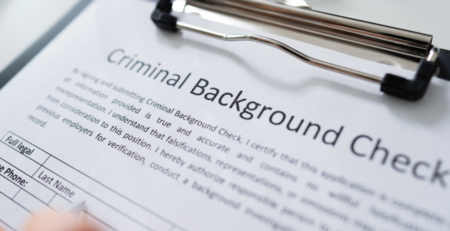Why Are Police Clearances Required?
Police clearances serve a key role in various aspects of modern life, offering proof that an individual has no criminal record or providing details of any prior convictions. Whether for employment, immigration, or other purposes, a Police Clearance Certificate ensures a level of security and trust for organisations, governments, and individuals alike. This article will explore the reasons police clearances are needed and what they involve.
What Is a Police Clearance Certificate?
A Police Clearance Certificate (PCC) is an official document issued by a law enforcement agency or government body, indicating whether a person has a criminal record. The purpose of this certificate is to provide a summary of an individual’s criminal background, if any. Many countries require applicants to submit personal information and fingerprints, which are used to verify their history.
Different countries may have varying processes for obtaining a police clearance, but the goal remains the same: to provide assurance that an individual does not have a criminal record that could pose a risk to public safety or security.
Reasons for Requiring Police Clearance
Police clearances are needed for a variety of reasons, ranging from professional requirements to legal obligations. Here are some common instances where police clearances are necessary.
Employment
Many employers, particularly in sensitive industries, require new hires to provide a police clearance certificate. This is common in fields such as healthcare, education, finance, and security. Jobs involving children, the elderly, or other vulnerable groups often require a thorough background check to ensure the safety of those being cared for.
Positions of trust, such as teachers, nurses, and social workers, frequently require a background check to confirm that the individual has no criminal history that might endanger others. Some high-level jobs in the corporate world, especially those handling sensitive information or finances, also require police clearances to ensure that employees have no history of fraud or other criminal activity.
Immigration and Visa Applications
Countries around the world often require a police clearance certificate as part of visa and immigration processes. This helps immigration authorities determine if an applicant poses any risk to public safety. Those seeking permanent residence, work permits, or student visas are often asked to provide proof that they do not have a criminal record.
In some instances, applicants must submit police clearances from multiple countries, especially if they have lived in different places for long periods. By verifying an individual’s background, immigration authorities can better manage the safety and security of the general population.
Adoption
Adoption agencies and legal authorities require individuals or couples applying to adopt to present a police clearance certificate. This is to ensure that the prospective parents do not have a criminal history, particularly related to violent crimes or child abuse.
Adoption involves placing a child in a new family, so the process requires extensive background checks. This helps ensure that the adoptive parents will provide a safe and secure environment for the child.
Volunteering
People interested in volunteering with certain groups, especially those working with children, the elderly, or individuals with disabilities, are often required to provide a police clearance. Charities, schools, and care centres need to verify that volunteers do not have a criminal history that could harm vulnerable individuals.
For example, volunteers helping at youth clubs, children’s charities, or community centres may need to undergo background checks to ensure the safety of the people they will be working with. The police clearance certificate gives organisations peace of mind by showing that the volunteer has no history of criminal activity.
Licences and Permits
Many professions require individuals to obtain certain licences or permits before practising. These include jobs such as taxi drivers, security personnel, and healthcare workers. As part of the licensing process, applicants are often required to submit a police clearance certificate.
This is important for positions where employees interact with the public or manage sensitive responsibilities. The police clearance provides assurance that the applicant does not have a history of offences that could make them unsuitable for the job.
Education
Certain educational programs, especially those involving work placements, may require students or staff members to provide a police clearance certificate. This is especially true for degrees in teaching, nursing, or social work, where students will be interacting with vulnerable groups during their studies.
For example, students training to become teachers may need a background check before starting their teaching placements in schools. This helps the institution ensure that students are safe to work with children.
How to Obtain a Police Clearance Certificate
The process for obtaining a police clearance certificate can vary depending on where the individual is applying from, but it generally involves the following steps:
- Personal Identification: Individuals must submit identification, such as a passport or national ID, to verify their identity.
- Fingerprints: Fingerprints may be required to conduct a thorough background check.
- Application Form: An official form will need to be completed, either online or in person.
- Fee: Applicants typically need to pay a processing fee to cover the cost of issuing the certificate.
The time it takes to receive the certificate can range from a few days to several weeks, depending on the country and the complexity of the individual’s background check. Once issued, the certificate is valid for a specific period, typically six months to one year, after which a new certificate may be required.
What If You Have a Criminal Record?
If an individual has a criminal record, it will usually appear on the police clearance certificate. Depending on the nature and severity of the offences, this may impact their ability to secure jobs, visas, or other opportunities.
Minor offences, such as traffic violations, may not affect job or visa applications, whereas more serious crimes, like fraud or violent offences, can have a significant impact. Employers, immigration officials, and other authorities typically consider the nature of the crime, how long ago it occurred, and whether the individual has shown any signs of rehabilitation.
In some cases, individuals with a criminal record may still be able to pursue certain opportunities if the offence is considered minor or if it occurred a long time ago.
The Role of Police Clearance in Society
Police clearances help promote safety and security in different sectors. By verifying that individuals have no criminal background, employers, governments, and organisations can make informed decisions about who to hire or admit.
This process helps protect vulnerable populations, such as children and the elderly, and ensures that individuals entering new roles or countries are trustworthy. Whether for employment, immigration, or volunteering, police clearance provides a clear and straightforward way to assess an individual’s background.












